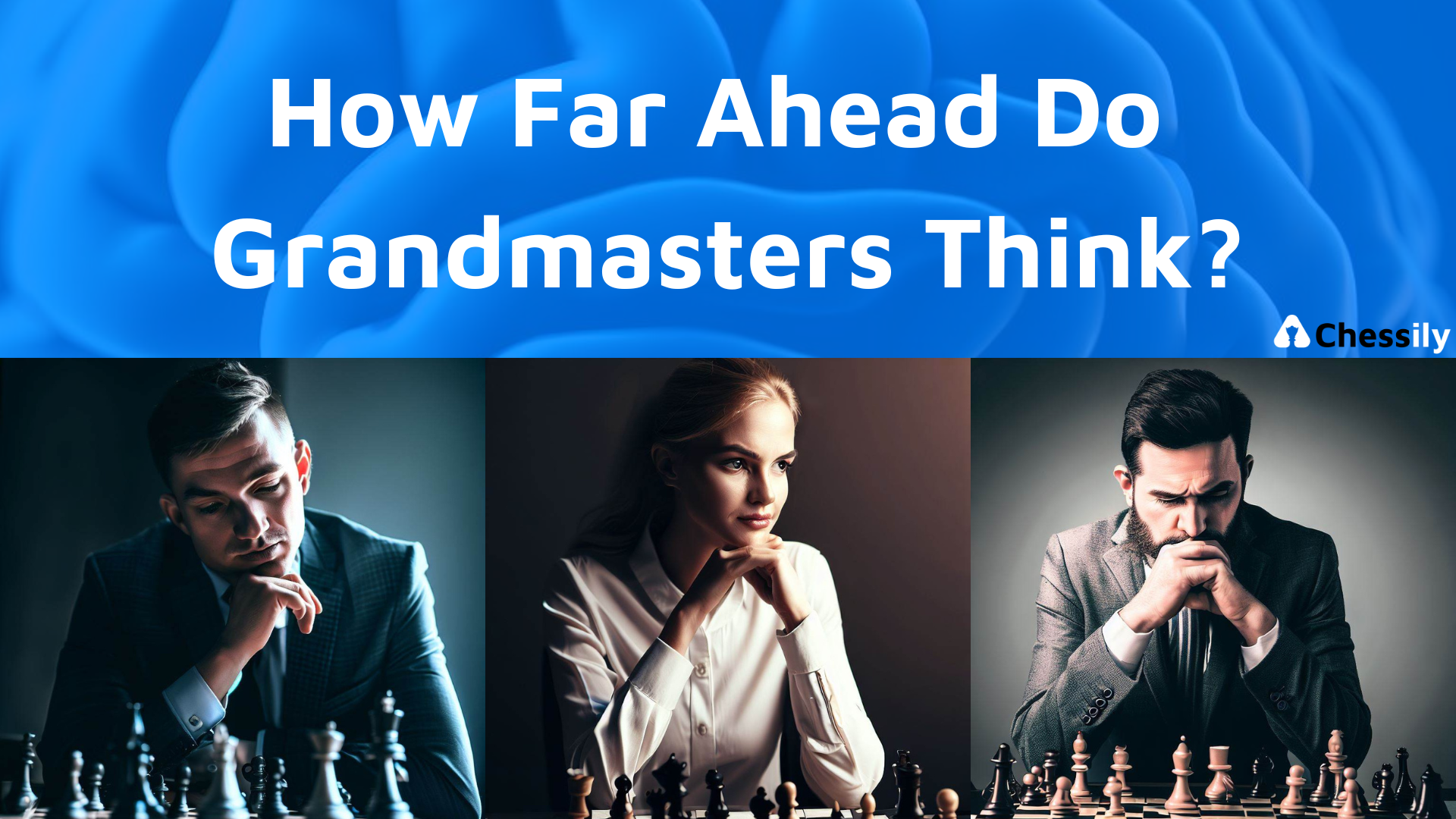How Far Ahead Do Grandmasters Think?
Ever wondered what separates a chess grandmaster from the rest of us? One of the key factors is their incredible ability to calculate ahead in the game. In this article, we’ll delve into the world of grandmaster calculation and explore just how far ahead these chess geniuses can see. Grab your favorite chess set and let’s dive in!
Factors Influencing Grandmaster Calculation
Calculation depth in chess depends on a variety of factors, including positional complexity, time constraints, and the individual player’s style. We’ll discuss these factors in more detail and see how they impact a grandmaster’s thought process during a game.
Positional Complexity
When it comes to calculating moves ahead, not all chess positions are created equal. There’s a significant difference between simple and complex positions. Let’s break it down:
- Simple positions: Fewer pieces on the board and limited tactical possibilities. Easier to calculate further ahead.
- Complex positions: Numerous pieces and countless tactical opportunities. More challenging to foresee all possible outcomes.
In complex positions, grandmasters rely heavily on their intuition to guide them. This intuition stems from years of experience and thousands of games analyzed. The more complex the position, the more a grandmaster’s intuition comes into play, as calculating every single possibility would be nearly impossible.
Additionally, grandmasters have a deep understanding of positional concepts like pawn structures, outposts, and open files. They use this knowledge to evaluate positions and make decisions even when they can’t calculate every possible variation.
Time Constraints
Another crucial factor that affects how far ahead grandmasters can calculate is the time control of a chess game. Let’s take a closer look at the differences in calculation depth between various time controls:
- Classical games: Longer time control allows for deeper and more thorough calculation.
- Rapid and blitz games: Shorter time controls require faster thinking, leading to more reliance on intuition and pattern recognition.
In time-limited situations, grandmasters adapt their calculation strategies, prioritizing pattern recognition and experience to make the best moves possible within the given time frame. They develop a keen sense of when to spend more time on critical positions and when to rely on their intuition to make quicker decisions.
Player Style and Preferences
Individual grandmasters also have their unique playing styles, which can affect their approach to calculation. Some players are known for their exceptional tactical skills, while others excel in quiet, strategic positions. This means that a grandmaster’s calculation depth may vary depending on their style and preferences.
How Far Ahead Grandmasters Typically Calculate
Now that we’ve discussed the factors that influence calculation, let’s dive into the burning question – how far ahead do grandmasters calculate? While there’s no definitive answer, we can provide an estimated range based on the previously discussed factors.
Average Calculation Depth
- Grandmasters typically calculate 3 to 5 moves ahead in most positions.
- In certain situations, they can reach a depth of 10 moves or more.
It’s essential to understand that quality is more important than quantity when it comes to calculation. Grandmasters focus on identifying the most critical lines and threats, rather than trying to analyze every possible move. They also pay attention to their opponent’s possible responses and plans, adapting their calculations accordingly.
Training for Calculation
Grandmasters dedicate a significant portion of their training to improving their calculation abilities. Some of the methods they use include:
- Tactics puzzles: Solving tactics puzzles helps develop pattern recognition and sharpens calculation skills.
- Blindfold chess: Playing chess without looking at the board improves visualization and mental calculation abilities.
- Analysis of their own games: Reviewing and analyzing their own games allows grandmasters to identify areas where their calculation can be improved.
By consistently working on these training methods, grandmasters continuously refine their calculation skills and maintain their high level of play.
Exceptional Calculation Feats
Throughout chess history, there have been some jaw-dropping moments where grandmasters have demonstrated incredible calculation abilities, foreseeing sequences 15 moves or more in advance. However, it’s important to recognize that these are rare occurrences and not the norm for every game. In most cases, grandmasters strike a balance between deep calculation and practical play.
Tips for Improving Your Calculation
If you’re inspired to improve your calculation abilities, here are some tips to help you on your journey:
- Practice tactics puzzles regularly to develop pattern recognition and tactical awareness.
- Analyze your games to identify calculation mistakes and learn from them.
- Study grandmaster games to understand how top players approach calculation and decision-making.
- Play longer time control games to give yourself more time to think and calculate during the game.
Conclusion
In summary, here’s what we’ve learned about grandmaster calculation:
- Calculation depth depends on the positional complexity, time constraints, and the individual player’s style.
- Grandmasters typically calculate 3 to 5 moves ahead, with the potential to reach 10 moves or more in certain situations.
- Intuition and pattern recognition play a significant role in effective calculation, especially in complex positions and shorter time controls.
- Grandmasters dedicate time to train and improve their calculation abilities through tactics puzzles, blindfold chess, and game analysis.
As you continue your journey to chess improvement, remember that effective calculation is a crucial skill to develop. By focusing on enhancing your calculation abilities and understanding the factors that impact grandmaster calculation, you’ll be well on your way to reaching new heights in your chess performance. Happy calculating!


